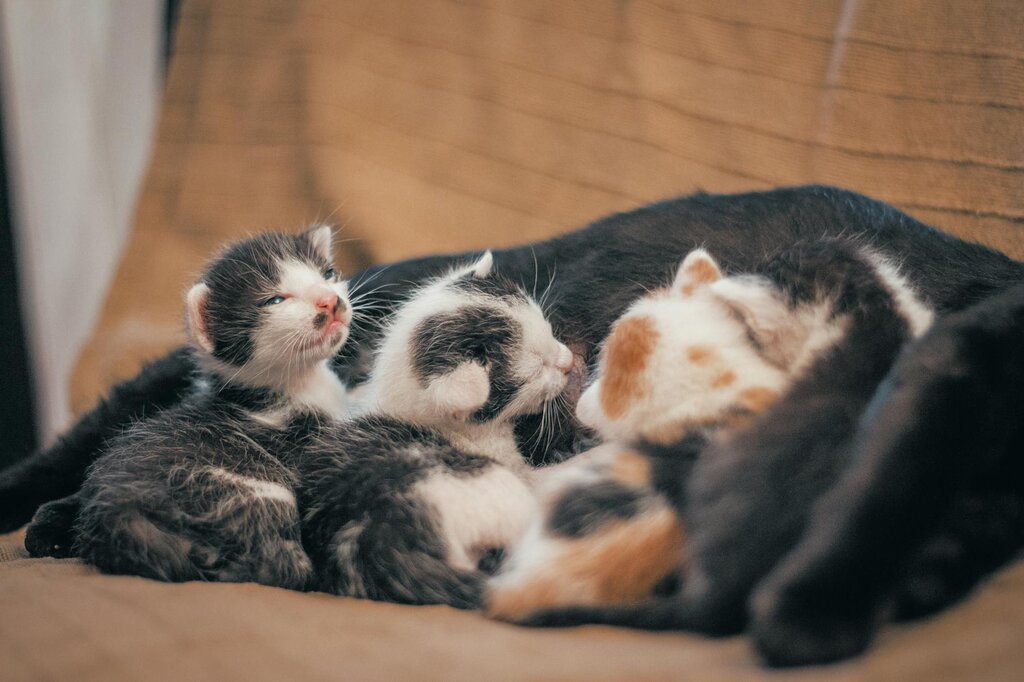1. Keep them warm
It is essential that young kittens are kept warm as they cannot regulate their own body temperatures. The mother would normally keep the environment warm and cosy at around 38-39oC for her babies. For orphaned kittens, a heat source such as microwavable heat pads should be provided up until 4-6 weeks of age. Make sure to tuck this under or wrap soft blankets or towels around it to ensure there is no direct contact with the heat pad. Check the temperature often to make sure that it is not too hot or too cold.
Provide a cosy nest in which the kittens can snuggle into. Use plenty of towels, and fleece or plush blankets, inside a cardboard box or pet carrier that is secure. Newspaper is a great liner to use, it is cheap and can retain warmth. Keep their environment clean by washing the bedding and blankets regularly. Young kittens are susceptible to disease and proper sanitation should be maintained.
2. Feeding
The best food for pregnant and lactating mums is a well balanced premium kitten food. These are nutritionally balanced for both baby cats AND their mothers. While a queen is feeding her kittens, her energy requirements may jump up to 2-3 times than normal in the first 4 weeks! This will gradually return to normal by about 6 weeks after birth and when the kittens are weaned. Read our full guide on looking after a pregnant cat.
Bottle feeding for orphaned kittens
In the unfortunate case where the mother is not available to feed her kittens, the orphaned kittens will need to be hand reared. Kittens in their first 2 weeks of life should be fed every 2-3 hours. From then to weaning, they may be fed every 4-6 hours.
Choose a milk replacement formula that has been specially designed for kittens and hand rearing. Make sure to follow the manufacturer's guidelines on how to make up the milk replacement solution, feeding amounts and storage recommendations. Adding warm water to the powder is preferred as microwaving the solution may cause overheating or uneven heating. Check that the heat is right by placing a few drops of milk on the back of your hand before feeding.
Weigh the kittens often, every 2-3 days, to make sure they are growing well. Kittens should be gaining around 10-15g per day at a consistent rate. Kitchen scales can be used to help check their weight. This can also help to ensure that the correct amount of milk is given as underfeeding milk can affect healthy growth. On the other hand, overfeeding can cause diarrhoea.
To feed the kittens, we recommend using a nursery bottle and teat that has been designed for cats. Make sure the teat opening is not too big or too small. You can check this by turning the bottle upside down. If milk leaks out easily through the teat, then the opening is too big. On the other hand, if it takes a good amount of squeezing on the bottle to produce drops of milk then the hole may be too small. The correct size will allow milk to drip out with light pressure on the bottle.


